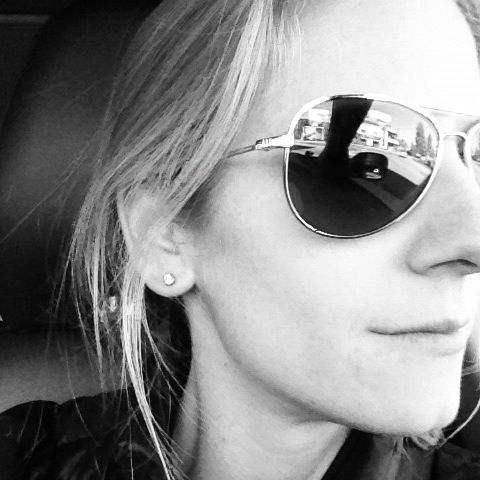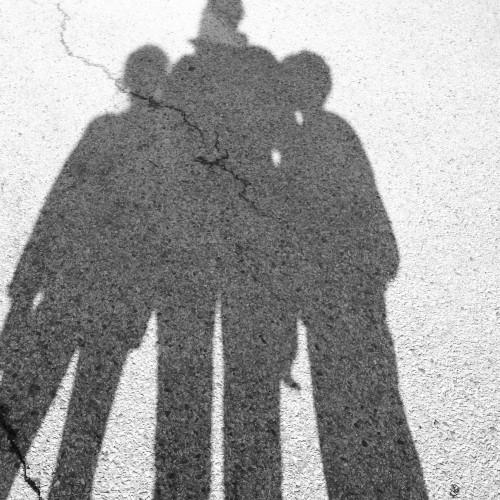
It has been a enormous privilege to have my piece, 10 Things I Want my Daughter to Know, read by people far and wide. It has also been interesting to see which points seem to most resonate. It is #10 that draws the strongest reaction, and criticism, and I think rightfully so. I stand by my point but absolutely agree I ought to have said it differently.
I was frankly more surprised by the strong reaction to #9, which cautioned Grace against trying to fill “a gnawing loneliness … inherited from me. That feeling, Woolf’s ’emptiness about the heart of life,’ is just part of the deal.” Over and over again, people told me I was missing something essential, diagnosed me with depression, or chided me for having a desperately bleak outlook on life. But the thing is, I didn’t think I was saying anything particularly inflammatory. I thought everybody felt this vague loneliness at the center of their experience, this unnamed, ineffable emotion that waxes and wanes depending on the day, week, or hour.
There’s no question this is true of me. The fact that I assumed this feeling was universal tells you how inextricable it is from my daily experience. There’s something inside me, deep, inarticulate, but powerful, and I can’t control it any more than I can adequately convey the degree to which it shapes my life. This truth, however, doesn’t make a sad person. I could, and would, argue that it allows me to feel profound joy.
While I recognize that we are all tuned into this feeling of loneliness to various degrees, I still think it is part of what makes us human and that it exists in each of us. Furthermore, I think that much of our addictive or distracted behavior (food, relationships, drinking, drugs, obsessive iphone-checking, you name it) is an effort to avoid awareness of this echoing emptiness. Or this darkness at the heart of life. Or this inexplicable awareness of something sorrowful that we can’t evade. Even as I write this I think: I’m going to get more comments about how depressed I am. And believe me, I’m not. But there is a seam of sadness that’s stitched through my life, some hollowness that underlies everything, that ebbs and flows through my consciousness. What I know now is that when I make an effort to really be here now, and to stop my frantic distractedness, that buried loneliness rises up.
Have you ever felt like the universe was talking to you? That experience when random, disconnected sources come together to form an undeniable chorus? And sometimes that chorus makes you feel less crazy and less alone? Well, I have. It’s how I connected Dr. Seuss with Mark Doty a while ago. The reason this particular topic, the loneliness that lies under all of life, is in my head, is because of Louis C.K., Caroline Knapp, and Hafiz.
Louis C.K.’s much-shared explanation of why his children won’t get a smartphone, which I watched several times, contained these sentences, which made me gasp:
That’s what the phones are taking away, is the ability to just sit there. That’s being a person. Because underneath everything in your life there is that thing, that empty—forever empty.
Yes. It’s through sitting with the emptiness, eschewing the behaviors that numb us to the darkness at the core of this life, that we learn to be human. I could not believe this more.
It was in Caroline Knapp’s beautiful collection of essays, The Merry Recluse (thank you, Lacy) that I read her piece titled Loneliness. Short and powerful, it made me stop, cry, underline, and re-read.
…sometimes I think I was born with it, born with a particularly acute sense of myself as apart from the world, as somehow different or lacking.
…the loneliness of my experience tends to be immune from reality, from circumstance or logic; it lies within me, a small, persistent demon that stirs in my quietest moments, during unplanned evenings, on Sunday mornings. It is a sense of void.
Yes. Just: yes. I too have a small, persistent demon. It exists in my chest and often functions as a glass wall between me and my own life. I watch, nose pressed up against the invisible barrier, always feeling removed. No matter how I shift and agitate, I cannot escape the painful reality of life’s impermanence. The fact that even as I live a moment it’s gone. The fact that no matter how much I grasp onto a particular season of life, photograph it, write about it, inhabit it, it slips through my fingers.
What’s new to me, at least in the last few years, is that this loneliness can be as valuable as it is undeniable and inescapable. Hafiz writes:
Don’t surrender your loneliness so quickly.
Let it cut more deep.
Let it ferment and season you as few
human or even divine ingredients can.
I can’t get away from this darkness at the heart of my experience, but maybe it also makes me who I am. Perhaps I am learning from and shaped by it in ways I can’t yet articulate. There is such liberation in this thought. This emptiness, it echoes, but it also informs the way I see this world that I so dearly love.
It’s the same emptiness that both Caroline Knapp and Louis C.K. describe. It’s the same gnawing loneliness that I referred to in my 10 Things. And I thought everybody had it. The reactions made me question that, but I’ve come to the conclusion that we all do, it’s just a question of how much we feel it. For me at least, the answer is a lot, and often.


